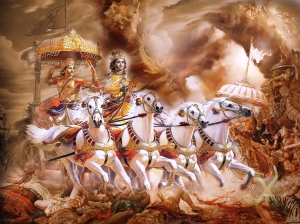
"Either write something worth reading or do something worth writing." This is what I concluded from this book. I spotted this book as a recommendation on Amazon. The title of the book was powerful enough to make me read the description. And I pre-ordered a copy, subsequently.
This is a book on success stories of 14 women who decided to embark on the journey of living their passion by calling it quits to their stable corporate career. All this was to live their dreams, irrespective of hurdles and naysayers in their way.
The debut authors Puja Singhal and Rinki Paul have compiled the interviews they conducted of 14 women who quit their high paying corporate jobs to pursue the road seldom taken- standup comedian, authors, models, singers, dancers etc. Undoubtedly, this book is a great source of inspiration for those who want to transform their passion into profession, but are held back by naysayers and by the fear of taking a chance against their stable corporate careers.
Each chapter is an account on the success journey of one of these 14 woman. Diligently penned, women-only stories, this book gives a sense of confidence to aspiring women entrepreneurs. However, it does not focus on empowering womanhood, but on tapping the power of actuating one's dreams, which is applicable to both the genders. This is a plus of the book.
With good vocabulary, brevity of the content and ability to cover the whole in a concise manner, the authors have delivered a book which is one of its kind!
While reading you may find yourself encounter multiple emotions every now and then- smiling, eager, angry, sad, relieved, stunned and lot more!
I have compiled a few of my favorite quotes from the women featured in the chronicle-
1) "It's better to live with 'Oh, Shit!' rather than 'What if?' - Neeti Palta, Standup comedian
2) "Close your eyes and imagine what you would do for the rest of your life if no one paid you to do it. That's what your job should be, and that will get you paid."- Miss Malini, Blogger
3) "Women are no equal to men, they are better. "If you do not feel the pain, you will never know joy."- Sonam Kalra, Singer, Musician, Writer
4) "All you touch and all you see, is all your life ever will be."- Monica Bhide, writer
5) "You can dance anywhere, even if only in your heart."- Sucheta Pal, India's first Zumba trainer
6) "...rejection means nothing more than someone being unable to see what you see."- Abha Maryada Banerjee, Motivational speaker, author
7) "Nothing works unless you do." "Add life to moments, instead of moments to life."- Neeru Sharma, Co-founder- Infibeam.com
8) "The only naysayer in my life is me."- Dr. Rangana Rupavi Choudhari, International speaker
9) "Money is important to survive, attachment with it is not."- Pooja Warier, Social Entrepreneur
10) "Jump towards the side where the heart lies and rest will be magical!"- Yukti Kapoor Mehandiratta, Entrepreneur, model and anchor
11) "As long as you are sure of a roof on your head and food on your table, you cannot go too wrong."- Anisha Singh, Co-founder & CEO- coupon provider, Mydala
My rating for this book is 4 on 5. Awaiting the next one by the authors, hopefully on a similar theme.
While reading you may find yourself encounter multiple emotions every now and then- smiling, eager, angry, sad, relieved, stunned and lot more!
I have compiled a few of my favorite quotes from the women featured in the chronicle-
1) "It's better to live with 'Oh, Shit!' rather than 'What if?' - Neeti Palta, Standup comedian
2) "Close your eyes and imagine what you would do for the rest of your life if no one paid you to do it. That's what your job should be, and that will get you paid."- Miss Malini, Blogger
3) "Women are no equal to men, they are better. "If you do not feel the pain, you will never know joy."- Sonam Kalra, Singer, Musician, Writer
4) "All you touch and all you see, is all your life ever will be."- Monica Bhide, writer
5) "You can dance anywhere, even if only in your heart."- Sucheta Pal, India's first Zumba trainer
6) "...rejection means nothing more than someone being unable to see what you see."- Abha Maryada Banerjee, Motivational speaker, author
7) "Nothing works unless you do." "Add life to moments, instead of moments to life."- Neeru Sharma, Co-founder- Infibeam.com
8) "The only naysayer in my life is me."- Dr. Rangana Rupavi Choudhari, International speaker
9) "Money is important to survive, attachment with it is not."- Pooja Warier, Social Entrepreneur
10) "Jump towards the side where the heart lies and rest will be magical!"- Yukti Kapoor Mehandiratta, Entrepreneur, model and anchor
11) "As long as you are sure of a roof on your head and food on your table, you cannot go too wrong."- Anisha Singh, Co-founder & CEO- coupon provider, Mydala
My rating for this book is 4 on 5. Awaiting the next one by the authors, hopefully on a similar theme.
(PS: the reviews expressed here are based on my personal reading experience, and do not intend to defame, derate or
degrade the sale or vice-versa for the book. I am not paid for writing this review.)
If you are an author and want your book to be reviewed, drop an email at bookreviews@mansiladha.com.














